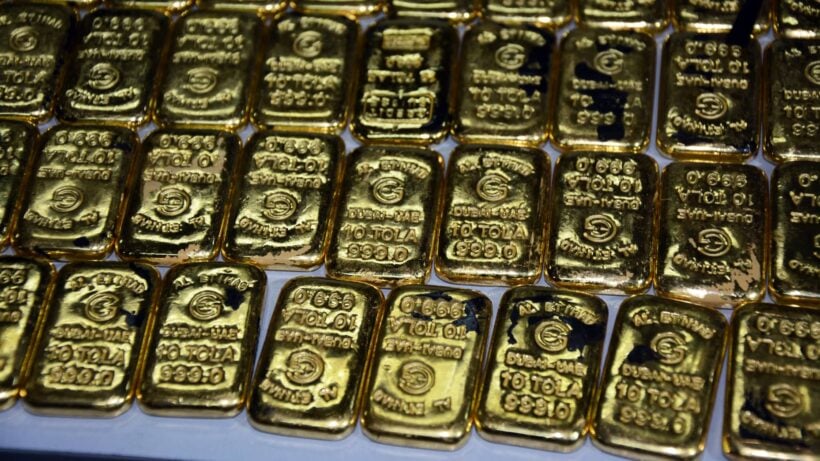‘New bullish phase’? As gold hits another high, analysts say more records are in sight
Key Points
- Gold is now in a “new bullish phase, driven by factors like central bank buying, rising U.S. debt and a potential peak in the U.S. dollar,” said Paul Wong, market strategist at Sprott Asset Management.
- His remarks came after the price of the yellow metal advanced to a fresh record high — $2,700 per ounce.
- A growing chorus of analysts have predicted that the price of gold will continue to rise to new records, with some expecting the commodity to cross $2,800 in the next three months.

Vector Photo Gallery | Istock | Getty Images
Gold is in a “new bullish phase” after prices notched another record high, said asset management firm Sprott Asset Management, echoing other analysts who have predicted that the bullion will continue to scale new heights.
“Gold has entered a new bullish phase, driven by factors like central bank buying, rising U.S. debt and a potential peak in the U.S. dollar,” Paul Wong, market strategist at Sprott Asset Management, wrote in a note, after the price of the yellow metal advanced to a fresh record of $2,700 per ounce on Monday.
Spot gold is currently trading at $2,729.14 per ounce, while gold futures are at $2,741.20.
“Rising U.S. debt-to-GDP ratios have historically led to higher gold prices due to concerns over the sustainability of debt, currency devaluation and debt monetization,” Wong continued.
The U.S. Congressional Budget Office expects public debt to rise from 98% of GDP in 2023 to 181% of GDP in 2053, the highest level in the country’s history.
As debt increases, governments might resort to printing money to address deficits, which can devalue the currency, Wong explained. This erosion of trust in fiat currency enhances gold’s appeal as a reliable store of value.
Persistent inflationary pressures and difficult macroeconomic conditions plaguing global economies suggest that central banks and investors are more likely to allocate to precious metals, he added.
According to World Gold Council data, the net purchases of gold by central banks in the first half of 2024 rose to 483 tonnes, 5% above the previous record set in the first half of 2023.
A growing chorus of analysts have predicted that the price of gold will continue to rise to $3,000, with some expecting the commodity to cross $2,800 in the next three months.
Gold prices “look better now” than ever before, said Michael Widmer, commodities strategist at Bank of America. “I think we’re closer to $3,000 pounds.”
Widmer cited elevated government debt levels and brewing geopolitical uncertainty as reasons for the his bullish outlook.
Pledges from Israel and its adversaries, Hamas and Hezbollah, to continue fighting in Gaza and Lebanon have diminished hopes of a resolution of the ongoing conflict in the Middle East.
Rising geopolitical tensions usually lead investors to flock to safe-haven assets such as gold, motivated by a desire to buffer against risks and instability in global markets.
Citi analysts have also held on to their view that gold will hit $3,000 in the next six to nine months. If oil prices spike due to a near-term escalation in the Middle East, they added, gold should see a lift.
Despite a drop in Chinese retail demand over the last three months, gold prices have still performed “extremely well,” which reflects the willingness of buyers to pay higher prices, according to Citi.
Meanwhile, Commonwealth Bank of Australia’s Vivek Dhar said in a note on Monday that he sees gold averaging $3,000 in the fourth quarter of next year as a result of “persistent weakness in the U.S. dollar.”
Still, Dhar said he expects gold to average $2,800 this quarter. Citi recently upgraded their view, also predicting that gold will hit $2,800 in three months.

